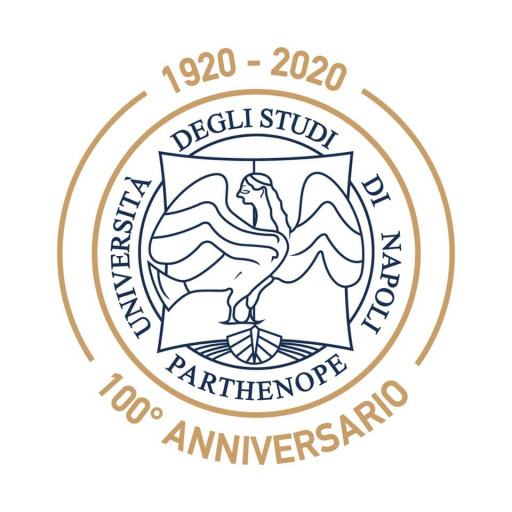The Master of Public Health (MPH) program at Rutgers University-Camden is a comprehensive graduate degree designed to prepare students for leadership roles in the field of public health. This program offers a broad curriculum that encompasses essential areas such as epidemiology, biostatistics, health policy and management, environmental health, and social and behavioral sciences. The curriculum is carefully structured to equip students with the analytical and practical skills necessary to address complex health issues affecting diverse populations. Students will gain a solid understanding of public health principles through coursework, practical experiences, and research opportunities.
The program emphasizes a multidisciplinary approach, encouraging students to understand the social determinants of health and develop culturally competent strategies for health promotion and disease prevention. Rutgers-Camden’s MPH program offers flexible learning options, including full-time, part-time, and online courses, allowing students to tailor their education to their professional commitments. The faculty comprises experienced public health professionals and scholars dedicated to mentorship, research, and community engagement.
Students in the program will have opportunities to participate in internships, community projects, and collaborative research initiatives with local health organizations, government agencies, and nonprofits. These experiences enable students to apply their knowledge in real-world settings, enhance their practical skills, and build professional networks. Graduates of the MPH program are prepared for careers in public health practice, policy making, research, and administration across various sectors, including government, healthcare, academia, and nonprofit organizations.
Rutgers University-Camden’s MPH program also emphasizes the development of leadership and communication skills, fostering students’ ability to advocate for health equity and social justice. It prepares graduates to analyze public health issues critically, design effective interventions, and contribute to the improvement of community health outcomes. With a commitment to diversity, equity, and inclusion, the program aims to cultivate public health professionals who are equipped to meet the evolving challenges of global and local health environments. Whether students are seeking to advance their careers or make meaningful contributions to public health, the Rutgers-Camden MPH program offers a rigorous, supportive, and impactful educational experience.
Public Health at Rutgers University-Camden is a comprehensive degree program designed to prepare students for diverse careers in health promotion, disease prevention, and health policy. The program offers a multidisciplinary approach, integrating coursework in epidemiology, biostatistics, health policy, environmental health, and social and behavioral sciences. Students will gain a thorough understanding of the social, economic, and environmental factors that influence community health and individual well-being. The curriculum emphasizes practical skills such as data collection and analysis, program planning and evaluation, and health communication strategies, equipping graduates to address complex public health issues across various settings, including government agencies, non-profit organizations, healthcare institutions, and research institutions.
Throughout the program, students are encouraged to engage in hands-on learning experiences through internships, community projects, and research opportunities. By collaborating with local health departments, community organizations, and health advocacy groups, students will develop the real-world skills necessary to design, implement, and evaluate public health interventions. The program also offers specializations in areas such as global health, environmental health, and health policy, allowing students to tailor their education according to their career interests.
The faculty comprises experienced public health professionals and researchers dedicated to mentoring students and fostering an engaging learning environment. The curriculum is designed to meet accreditation standards and to prepare students for further graduate studies or professional certification. Graduates of the program will be equipped not only with knowledge but also with the leadership skills required to advocate for health equity and improve health outcomes in diverse populations. Whether you aim to work at a grassroots level or influence health policy on a broader scale, Rutgers University-Camden’s Public Health program provides a solid foundation for a meaningful career in advancing community and global health.
Program Requirements for Bachelor of Arts in Public Health at Rutgers University-Camden include completion of 120 credit hours, with a minimum 45 credits at the 300-400 level. Students must complete core courses such as Introduction to Public Health, Epidemiology, Environmental Health, Health Policy and Management, and Social and Behavioral Aspects of Public Health. In addition to these, students are required to choose electives within the discipline to develop specialized knowledge, including courses in biostatistics, health communication, or global health. A capstone project or internship is mandatory to provide practical experience in public health settings. Students must maintain a minimum GPA of 2.0 overall to progress effectively through the program. The core curriculum emphasizes research methods, ethics, and the social determinants of health, preparing students for careers or graduate studies in public health. All students need to complete general education requirements, including English, mathematics, science, and social sciences. Typically, transfer students and those with prior college credits must meet the same graduation standards, with some credit transfer considerations. The program encourages participation in relevant internships, service learning, and fieldwork to enhance practical skills. Students are also advised to consult with academic advisors regularly to ensure they meet all necessary milestones and accreditation standards. The program aligns with the standards set by the Council on Education for Public Health (CEPH), ensuring comprehensive coverage of essential public health competencies.
The Bachelor of Science in Public Health at Rutgers University-Camden offers a variety of financing options to assist students in managing the cost of their education. Students can explore federal financial aid programs, including grants and loans, by submitting the Free Application for Federal Student Aid (FAFSA). Rutgers University-Camden participates in federal work-study programs, providing part-time employment opportunities for eligible students to help cover educational expenses. Additionally, the university provides institutional scholarships based on academic achievement, leadership, and financial need, which students can competitively apply for through the university's scholarship portal. There are also external scholarship opportunities from government agencies, private organizations, and health-related foundations accessible to students pursuing degrees in public health. The university encourages students to consult the Office of Financial Aid and Veteran Services for personalized guidance on available funding sources and application procedures. Payment plans are often available to distribute tuition payments over the semester, easing financial burdens. Some students may also qualify for loan programs through private lenders or educational loan schemes, which offer flexible repayment options. Work placements, internships, and cooperative education opportunities linked to the program may sometimes offer stipends or financial support, allowing students to gain practical experience while offsetting costs. Rutgers University-Camden also holds informational seminars and workshops to educate students about financial planning, debt management, and maximizing available funding options. Students are advised to start financial planning early in their academic careers to identify suitable funding avenues, understand eligibility criteria, and ensure timely applications. Overall, the university strives to provide comprehensive support and multiple financing avenues to make education in Public Health accessible and affordable for a diverse student population.
The Bachelor of Science in Public Health at Rutgers University-Camden is a comprehensive undergraduate program designed to prepare students for careers dedicated to improving the health and well-being of populations. The curriculum provides a broad understanding of health issues, including epidemiology, health policy, environmental health, and social determinants of health. Students gain critical knowledge and practical skills necessary for roles in healthcare organizations, government agencies, non-profit organizations, and private sectors focused on health promotion and disease prevention. The program emphasizes both foundational sciences and applied experiences, often integrating internships, community engagement, and research opportunities to enhance student learning and professional readiness. Faculty members are committed to fostering an inclusive educational environment that encourages active learning, critical thinking, and innovative problem-solving. Graduates are well-equipped to pursue graduate studies in public health or related fields, or to enter the workforce directly in areas such as health education, health administration, public health policy, and environmental health management. The program also offers opportunities for interdisciplinary collaboration and community service, reflecting Rutgers-Camden’s broader mission to serve diverse populations and address contemporary health challenges. The curriculum is periodically reviewed and updated to align with emerging public health issues and industry standards, ensuring students are prepared to meet the dynamic demands of the health sector. Students benefit from Rutgers-Camden’s strategic location and its partnerships with local health organizations, which facilitate internships and fieldwork experiences. Upon graduation, students are prepared to contribute effectively to public health initiatives and to pursue further education at the master's or doctoral level. The program emphasizes ethical practice, cultural competency, and lifelong learning, aligning with the core values of the public health profession.










